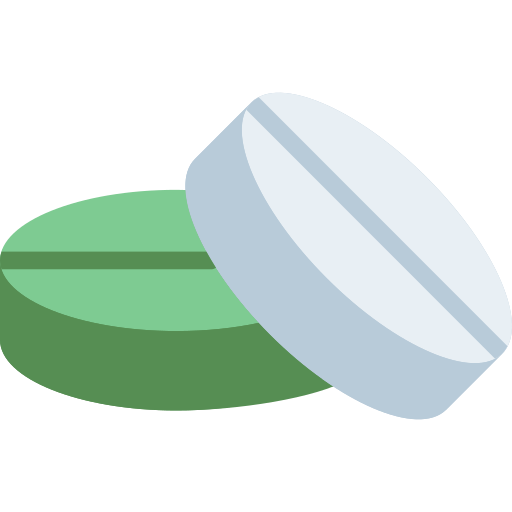
Valsartan + Hydrochlorothiazide
160 mg+12.5 mg
Eskayef Pharmaceuticals Ltd.
Product Details
Description
Valsartan: Diuretics: Patient on diuretics may occasionally experience excessive reduction in blood pressure after initiation of therapy with Valsartan. No drug interaction of clinical significance has been identified with thiazide diuretics. Agents increasing Serum Potassium: Since Valsartan decreases the production of aldosterone, potassium supplements or salt containing potassium substitutes may lead to hyperkalemia. Lithium Salts: As with other drugs which eliminate sodium, lithium clearance may be reduced. Therefore, serum lithium levels should be monitored carefully if lithium salts are to be administered. Other drugs showing interaction are Warfarin, Digoxin. Hydrochlorothiazide: When administered concurrently, the following drugs may interact with thiazide diuretics: alcohol, barbiturates, or narcotics may potentiate antihypertensive effect or orthostatic hypotension may occur. Antidiabetic drugs (oral agents and insulin): dosage adjustment of the antidiabetic drug may be required. Other antihypertensive drugs give additive effect. Cholestyramine and colestipol resins: absorption of Hydrochlorothiazide is impaired in the presence of anionic exchange resins.
The combination of Valsartan and Hydrochlorothiazide is generally well tolerated and side effects are rare. The most common side effects include headache, dizziness, fatigue, abdominal pain, cough, diarrhea and nausea. Patient may also experience hyperkalemia, impotency, reduced renal function, allergic reactions, dyspnea, constipation, back pain, muscle cramps, rash, anxiety, insomnia and vertigo. Hypotension may also occur.
Pregnancy: Valsartan should not be used in pregnancy, as in 2nd and 3rd trimester it can cause injury and even death to fetus. When pregnancy is detected, Valsartan should be stopped as soon as possible. Nursing mothers: It is not known whether Valsartan is excreted in human milk. Hydrochlorothiazide is excreted in breast milk.
Impaired Hepatic Function: As the majority of Valsartan is eliminated in the bile, care should be exercised in patients with mild to moderate hepatic impairment including biliary obstructive disorder. Impaired Renal Function: Dosage reduction or discontinuation may be required with patients having pre-existing renal impairment because thiazides may precipitate azotemia. Heart Failure and Myocardial Infarction: Caution should be observed when initiating therapy in patients with heart failure and post-myocardial infarction patients.
Use in Patients with Renal Impairment: The usual regimens of therapy with this combination may be followed as long as the patient's creatinine clearance is >30 ml/min. In patients with more severe renal impairment, loop diuretics are preferred to thiazides. In that case, hydrochlorothiazide is not recommended. Use in patients with Hepatic Impairment: Care should be taken in patient with hepatic impairment.
Valsartan: Limited data are available related to overdosage in humans. The most likely manifestations of overdosage would be hypotension and tachycardia; bradycardia could occur from parasympathetic (vagal) stimulation. If excessive hypotension occurs, the patient should be placed in the supine position and if necessary, has to be given an intravenous infusion of normal saline. Hydrochlorothiazide: The most common signs and symptoms observed are those caused by electrolyte depletion (hypokalemia, hypochloremia, and dehydration) resulting from excessive diuresis. if digitalis has also been administered with it, hypokalemia, may accentuate cardiac arrhythmias. The degree to which Hydrochlorothiazide is removed by hemodialysis has not been established.
Combined antihypertensive preparations
Store between 15-30° C.
-
Support 24/7
Call us anytime -
100% Safety
Only secure payments